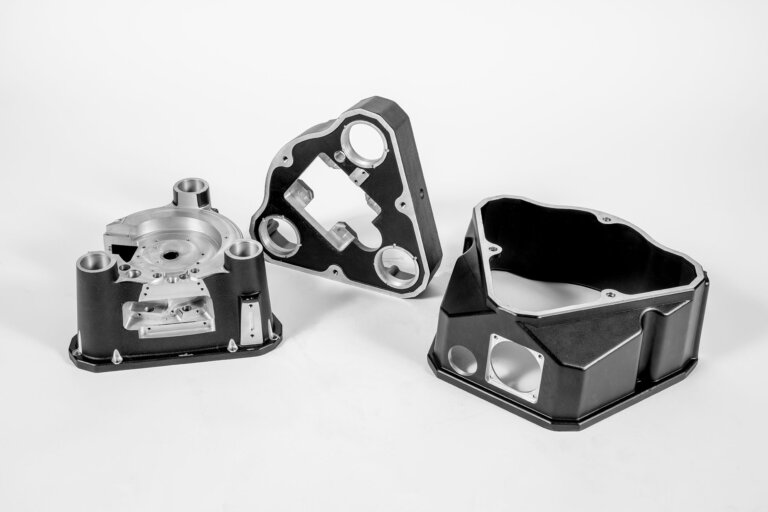Fascination About Alcast Company
Fascination About Alcast Company
Blog Article
The smart Trick of Alcast Company That Nobody is Discussing
Table of ContentsThe smart Trick of Alcast Company That Nobody is DiscussingSome Ideas on Alcast Company You Should KnowRumored Buzz on Alcast CompanyAlcast Company - QuestionsThings about Alcast CompanyThe Facts About Alcast Company Revealed
Chemical Contrast of Cast Aluminum Alloys Silicon advertises castability by lowering the alloy's melting temperature and boosting fluidity during spreading. In addition, silicon contributes to the alloy's strength and wear resistance, making it beneficial in applications where longevity is essential, such as automobile components and engine parts.It likewise boosts the machinability of the alloy, making it easier to process right into ended up items. In this means, iron adds to the total workability of aluminum alloys.
Manganese contributes to the toughness of aluminum alloys and boosts workability (aluminum foundry). It is commonly used in wrought light weight aluminum items like sheets, extrusions, and profiles. The visibility of manganese help in the alloy's formability and resistance to cracking throughout manufacture processes. Magnesium is a lightweight component that supplies toughness and impact resistance to light weight aluminum alloys.
8 Easy Facts About Alcast Company Explained
Zinc enhances the castability of light weight aluminum alloys and helps regulate the solidification process throughout spreading. It improves the alloy's stamina and solidity.

The primary thermal conductivity, tensile stamina, return strength, and prolongation differ. Among the above alloys, A356 has the highest thermal conductivity, and A380 and ADC12 have the lowest.
Getting The Alcast Company To Work

In accuracy casting, 6063 is appropriate for applications where complex geometries and top notch surface coatings are extremely important. Examples consist of telecommunication enclosures, where the alloy's remarkable formability permits sleek and visually pleasing layouts while keeping structural integrity. In the Illumination Solutions industry, precision-cast 6063 elements create elegant and efficient lights fixtures that require detailed shapes and excellent thermal efficiency.
The A360 shows exceptional elongation, making it perfect for facility and thin-walled elements. In precision spreading applications, A360 is appropriate for industries such as Consumer Electronic Devices, Telecommunication, and Power Devices.
The Ultimate Guide To Alcast Company
Its distinct buildings make A360 an important selection for precision spreading in these industries, improving product sturdiness and top quality. Light weight aluminum alloy 380, or A380, is a widely used casting alloy with several distinct characteristics. It offers superb castability, making it an ideal option for accuracy casting. A380 shows good fluidity when molten, guaranteeing complex and thorough mold and mildews are accurately recreated.
In precision casting, light weight aluminum 413 shines in the Consumer Electronics and Power Devices markets. This alloy's remarkable corrosion resistance makes it an exceptional option for outside applications, guaranteeing durable, long lasting items in the pointed out industries.
5 Simple Techniques For Alcast Company
The aluminum alloy you pick will significantly influence both the casting procedure and the properties of the last product. Because of this, you have to make your decision very carefully and take an educated strategy.
Establishing the most ideal light weight aluminum alloy for your application will certainly suggest weighing a vast array of attributes. The initial category addresses alloy characteristics that impact the production procedure.
How Alcast Company can Save You Time, Stress, and Money.
The alloy you choose for die casting straight influences a number of aspects of the spreading process, like how very easy the alloy is to function with and if it is susceptible to casting problems. Hot splitting, likewise called solidification splitting, is a common die casting issue for light weight aluminum alloys that can result in interior or surface-level tears or cracks.
Specific aluminum alloys are a lot more susceptible to warm splitting than others, and your option needs to consider this. It can damage both the cast and the die, so you ought to look for alloys with high anti-soldering buildings.
Deterioration resistance, which is currently a significant characteristic of aluminum, can vary considerably from alloy to alloy and is a vital particular to think about relying on the ecological problems your item will be subjected to (Casting Foundry). Use resistance is another property generally sought in light weight aluminum items and can distinguish some alloys
Report this page